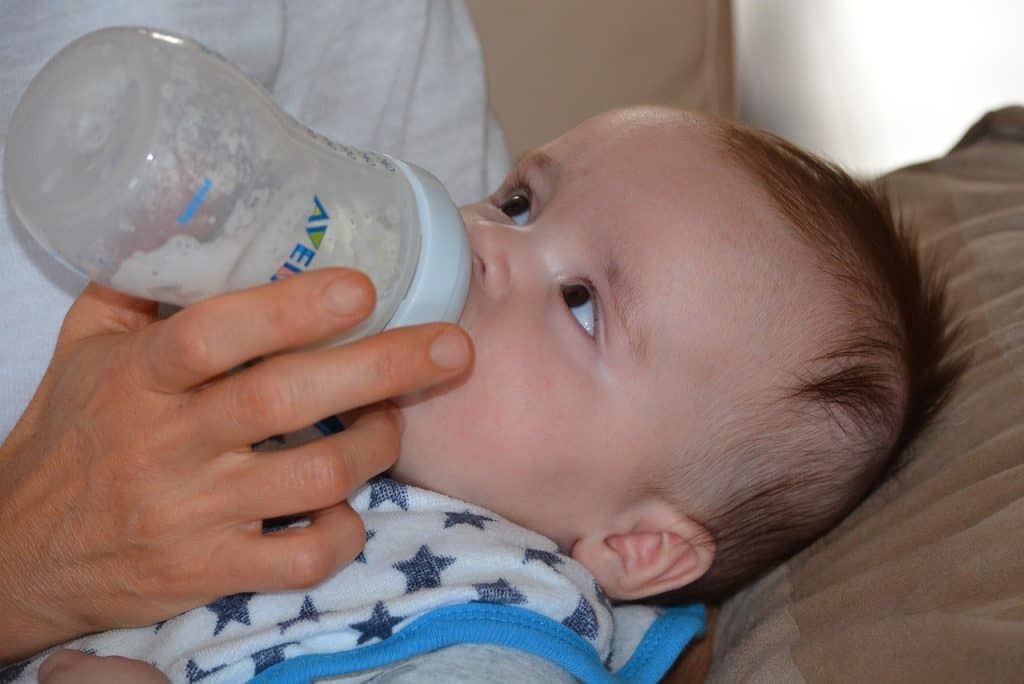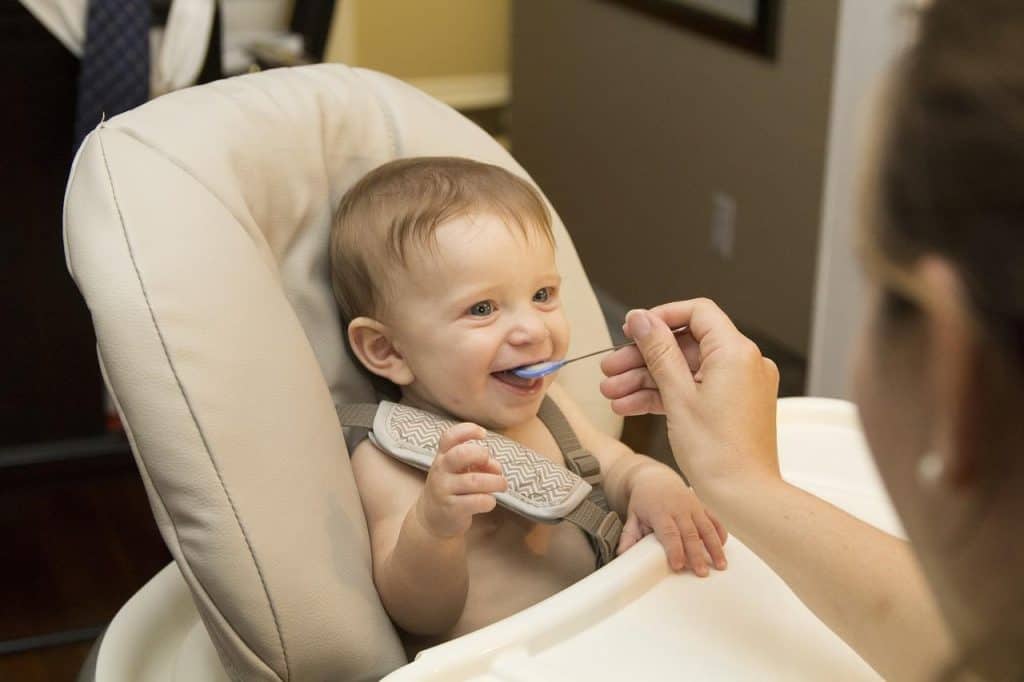The smell of babies’ poop varies because of the differences in their diet. For instance, breastfed babies have less odorous poop, while formula-fed babies’ poop smells a little stronger. If their poop suddenly becomes foul-smelling, it can be alarming, especially for first-time parents.
Babies’ poop smells like vinegar when their digestive tract can’t absorb food well. Lactose intolerance, food sensitivity, and allergies are other possible causes. Sour-smelling poop can also be due to Crohn’s disease, Rotavirus, or teething.
You can learn about a baby’s overall health by the appearance, smell, size, frequency, and consistency of their poop. However, it’s worth noting that not all babies poop the same. If your baby’s poop smells sour, the first step you must take is to determine the cause.
Babies Poop Smells Like Vinegar (Possible Causes)
1. Malabsorption
Malabsorption refers to the digestive tract’s inability to absorb the nutrients the body needs. Parasites, viruses, or bacterial infections can cause this. The child might have damaged intestines or is suffering from a hereditary illness.
If your baby experiences malabsorption, its poop can smell sour. Aside from vinegar-smelling poop, you can recognize malabsorption by its other symptoms, such as persistent abdominal pain, bloated stomach, vomiting, rashes, and weight loss.
Visiting your baby’s doctor is advised because malabsorption can lead to malnutrition, affecting the child’s brain growth and quality of life. The treatment for malabsorption depends on its cause, but it usually involves changes in the baby’s diet.
2. Lactose Intolerance
Your baby’s poop can smell vinegary if they’re sensitive to lactose. If you breastfeed your infant, you must pay attention to the dairy products you consume because you can pass it to them through your breast milk.
Similarly, the baby can be sensitive to the milk formula you feed them. Regardless of the cause, lactose intolerance can cause bloating, gas, abdominal pain, and diarrhea, so be cautious. Try other alternatives, such as lactose-free or soy-based formula milk.
It’s worth emphasizing that lactose intolerance differs from milk allergy. The former occurs due to the lack of the enzyme that breaks the lactose into simpler forms so the gut can absorb it. You can get your baby tested for lactose intolerance.
On the contrary, milk allergy materializes when the immune system reacts to cow’s milk. Other milk allergy symptoms include wheezing, vomiting, swelling of the lips or eyes, and itching. Bring your infant to the doctor if they experience anaphylaxis and other severe allergic reactions.
3. Indigestion
If your babies poop smells like vinegar indigestion could be the reason. Infants have difficulty digesting their food properly because their esophageal sphincters are still developing. Therefore, indigestion happens frequently in babies.
Indigestion can happen in babies because of many different things. Still, one of the most common causes is the baby’s immoderate energy use. Playing excessively, overexcitement, overeating, and eating when tired are a few examples of this.
You’ll notice your baby being irritable when they have indigestion. Other symptoms include restlessness, teeth grinding, bad breath, bloated stomach, constipation, drooling, and hives. Some babies might also experience difficulty in breathing and general congestion.
Treating indigestion as soon as possible is crucial to avoid worsening symptoms. Remember not to overfeed your baby. If possible, breastfeed your baby until six months old, hold them upright after feeding them, and burp and massage them.
4. Food Sensitivity
It’s not an over-exaggeration to say that babies are sensitive to almost everything. However, the most critical aspect parents must pay attention to is the baby’s diet. After all, some infants are overly sensitive to cow’s milk or other ingredients in the milk formula.
Babies consuming (or switching to) formula milk might have sour-smelling poop. If your child is sensitive to cow’s milk, ask your pediatrician for alternative formulas. Meanwhile, breastfeeding mothers must be mindful of their food intake because what they eat indirectly affects the child.
If you breastfeed your baby, be mindful when eating beans, broccoli, cabbage, cauliflower, citrus, and corn. Eggs, nuts, soy, and other dairy products can also upset your child’s stomach.
5. Food Allergies
Babies aged six months can slowly transition from breast milk or milk formula to solid food. Parents must be mindful of what they feed their children because they might be allergic to a particular food. They must consider their family’s history of food allergies (if there are any).
Suppose your baby has vinegar-smelling poop accompanied by blood or mucus. It alerts you of your child’s acute reaction to their food. If they also suffer from itchiness, diarrhea, and wheezing, visit your pediatrician immediately.
6. Teething
Many parents believe that teething causes their babies’ poop to smell like vinegar. However, there’s no scientific explanation that proves this. According to them, the change in smell occurs when the child’s teeth start to erupt.
A possible explanation involves the baby swallowing excess saliva, which causes digestive issues that can lead to sour-smelling poop. Ibuprofen administered to the child teething to relieve their pain can also make their stool smell like vinegar. Give them teething toys instead to avoid this.
7. Crohn’s Disease
Unknown to many, Crohn’s disease doesn’t only develop in adulthood but at any age. This disease causes inflammation of tissues in the digestive tract and chronic swelling. One of its symptoms is explosive, loose, and sour-smelling stool with a mix of blood and mucus.
Some early signs of Crohn’s disease are abdominal pain, nausea, vomiting, and sudden weight loss. You must immediately proceed to the emergency room if you suspect your baby has it. This disease can be painful and potentially life-threatening if there are complications.
According to medical experts, Crohn’s disease has no known causes, making it challenging to prevent. There’s no cure yet, but diet changes and supplements make the condition manageable. Consult your pediatrician for a treatment plan if your child has Crohn’s disease.
8. Rotavirus
Rotavirus is the most crippling cause of diarrhea among newborns and children below two years old. It infects the stomach, causing watery and sour-smelling stools, abdominal cramps, high fever, dehydration, and vomiting. This disease is airborne and preventable with a vaccination.
9. Cystic Fibrosis
Many children and young adults suffer from a genetic disorder called cystic fibrosis. It damages the digestive system and blocks the lungs with mucus. The symptoms typically manifest before the child reaches one year of age.
Cystic fibrosis can cause severe complications like a lung infection. There’s no cure for this disorder. Therefore, it’s crucial to watch out for signs and symptoms, especially if you have a family history of this condition.
What to Do if Babies’ Poop Smells Like Vinegar
Expect your baby’s stool to smell foul from time to time. As mentioned earlier, a change in smell, consistency, appearance, and frequency in babies’ poop heavily depends on their diet.
If your baby’s poop smells like vinegar, refrain from panicking and give it some time to go back to normal. Immediately identify its cause instead.
There might be no need to worry if the cause of sour-smelling poop is the change in the child or mother’s diet. Perhaps you need to avoid dairy products for a while, change your baby’s formula, or give them probiotics.
Remove the food that your baby is sensitive to in their diet. Food sensitivity is one of the most common causes of sour-smelling poop. Observe any changes in your child’s bowel movement when introducing them to new food.
There might be a cause for alarm if other symptoms are present aside from the child’s sour-smelling poop. Procure an early diagnosis if your baby also experiences diarrhea, constipation, fever, bleeding, or other issues that might indicate a disease, disorder, or health issue.
If you notice an underlying issue in the change of smell in your baby’s stool, don’t hesitate to visit your doctor as soon as possible. After all, there’s no harm in being too careful. Every child’s health is all parents’ utmost priority.
It’s worth emphasizing that it always helps to be observant. Take note of every ingredient in your baby’s diet. Most importantly, list all signs or symptoms you notice before visiting your pediatrician.
Final Thoughts
Contrary to what most parents expect, vinegar-smelling poop is typical. The cause can vary from child to child, and there may or may not be a reason to be alarmed. The best action is to identify the cause, take note of other symptoms (if there are any), and seek medical advice.
Ultimately, remember to trust your instincts as a parent, especially regarding your child’s health. Some might think of it as a myth. However, parents naturally form strong bonds with their babies, allowing them to know more about them than anyone else.













